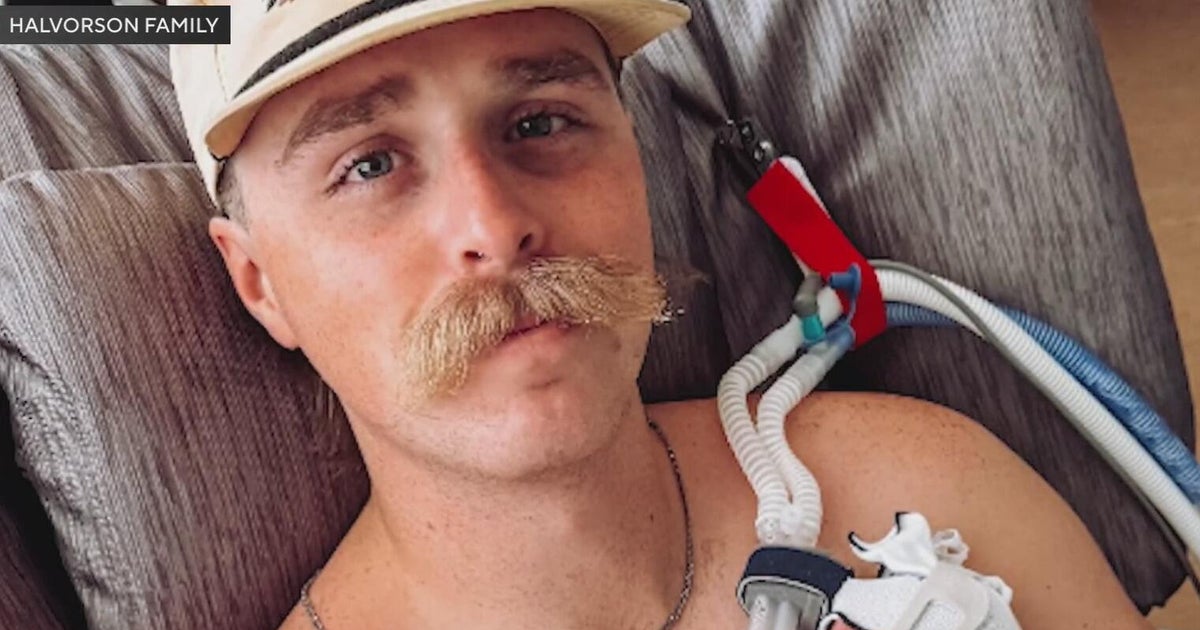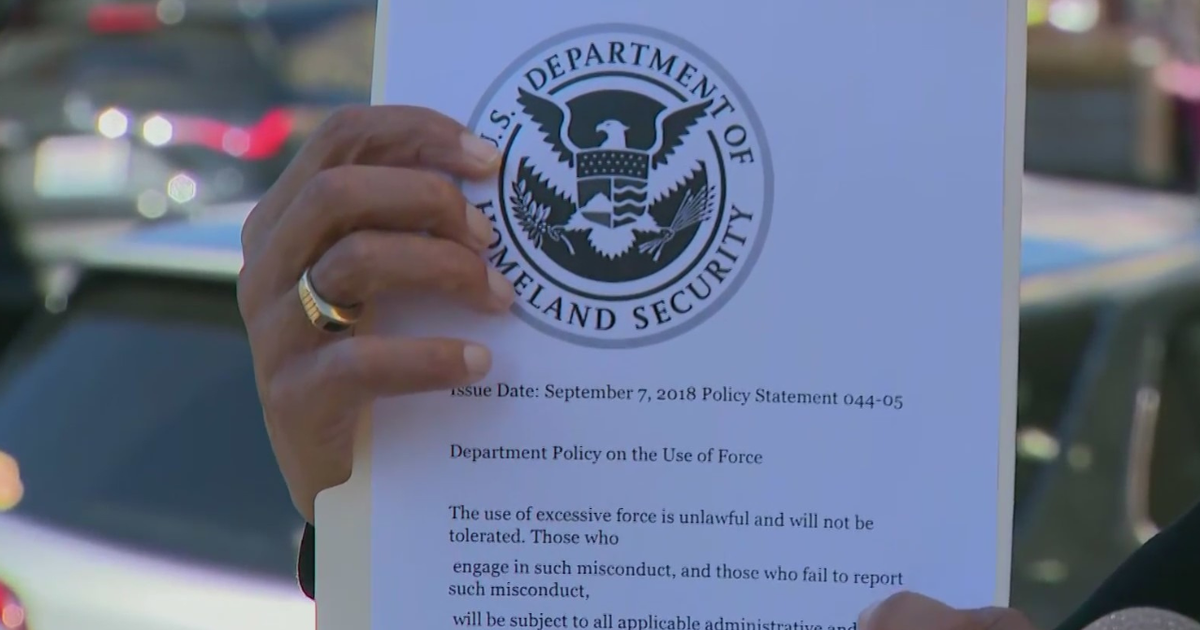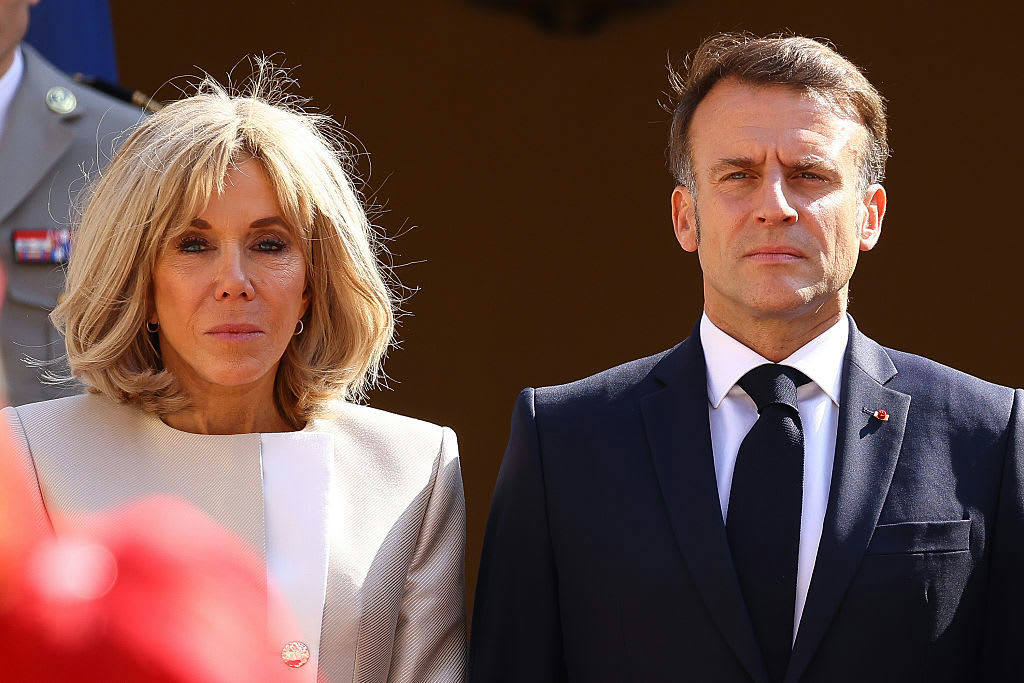Jailed Egyptian-British activist Alaa Abdel-Fattah has "deteriorated severely" since hunger strike, family says
The family of imprisoned Egyptian activist Alaa Abdel-Fattah said they were allowed to see him on Thursday and that his condition has "deteriorated severely" following a dramatic hunger strike.
The news was posted in a tweet by his sister Mona Seif after a visit to the prison of Wadi el-Natroun, north of Cairo, by the activist's mother, aunt and his other sister. It was their first time seeing him in nearly a month.
"News from the visit are unsettling," Mona tweeted, adding that her brother had "deteriorated severely in the past 2 weeks." She did not elaborate more on his health but said the family would share more information later in the day.
In a statement on Thursday, Abdel-Fattah's family said they have not known much about his condition since his imprisonment.
"We saw Alaa today for the first time since October 24th," the family said in a statement. "We knew that on November 1st, he was going to drop the 100 calories that had been keeping him alive for over six months. When we saw him today, he was exhausted, weak and vulnerable. He was very, very thin."
"We knew that on November 6th, the first day of the COP27 conference in Sharm el-Sheikh, he was going to stop drinking water. Beyond that, we knew almost nothing about what has happened to him inside prison, except for two short notes we received from him on Monday and Tuesday this week," the family added.
The family has not seen Abdel-Fattah since the last pre-allotted visit on Oct. 24 and had not been given information on his condition. The meetings, conducted behind a glass barrier, usually last for around 20 minutes.
The family said on November 6 Adbel-Fattah stopped drinking water and on November at 8 he was ordered to the Medical Centre for a "routine examination" — prompting thoughts that he was being force-fed.
"They were pressuring Alla to submit to a medical examination so that they could produce a medical report," his family said. "He said if it was officially put on the record that he was admitted to the Medical Centre and that he was on a hunger and water strike, then he would submit to a medical. "
But instead, his family said, they brought in a plain clothed officer to "intimidate" him and when he refused to leave the medical center a riot squad removed him.
"As he was being carried out he 'lost it' and had a meltdown and promised to kill himself if he was taken back to the cell," his family said, and on November 9 he "smashed his own head against the wall" until he drew blood in order to "force authorities to file an official report and bring in an investigator."
After passing out in the shower on November 11 he awoke to a "canula in his body which gave him lactate solution and glucose" before giving him "electrolyte fluid, a spoonful of honey and a pickle," ending his hunger strike.
Abdel-Fattah is one of Egypt's most prominent pro-democracy campaigners. He had intensified his hunger strike and halted all calories and water at the start earlier in November of the U.N. climate conference underway in Egypt's Red Sea resort of Sharm el-Sheikh to draw attention to his case and those of other political prisoners.
Abdel-Fattah, who turns 41 on Friday, has spent most of the past decade in prison because of his criticism of Egypt's rulers. Last year, he was sentenced to five years for sharing a Facebook post about a prisoner who died in custody in 2019.
His hunger strike drew attention on Egypt's heavy suppression of speech and political activity, during the Arab nation hosting of the U.N. climate summit, known as COP27. Since 2013, President Abdel-Fattah el-Sissi's government has cracked down on dissidents and critics, jailing thousands, virtually banning protests and monitoring social media.
During the two-week climate conference, U.S. President Joe Biden, British Prime Minister Rishi Sunak, French President Emmanuel Macron and German Chancellor Olaf Scholz all raised the activist's case in their private talks with el-Sissi. Abdel-Fattah gained British citizenship earlier this year through his mother, who was born in London. The family have frequently criticized the British government for not doing enough to secure his release.
But the ending of the hunger strike, which was a surprise to his family, also raised questions over whether Abdel-Fattah had been told something by authorities.
"I have no idea why he took this step, has he been promised something, what has been told to him, what has been hidden from him, I have no idea," Soueif said earlier.
Egypt's foreign minister has tried to talk down the attention on Abdel-Fattah. In an interview with The Associated Press on Saturday on the sidelines of COP27, Sameh Shoukry said the priority of the summit should be focused on ''the existential challenge related to climate change'' not the activist's wellbeing.





